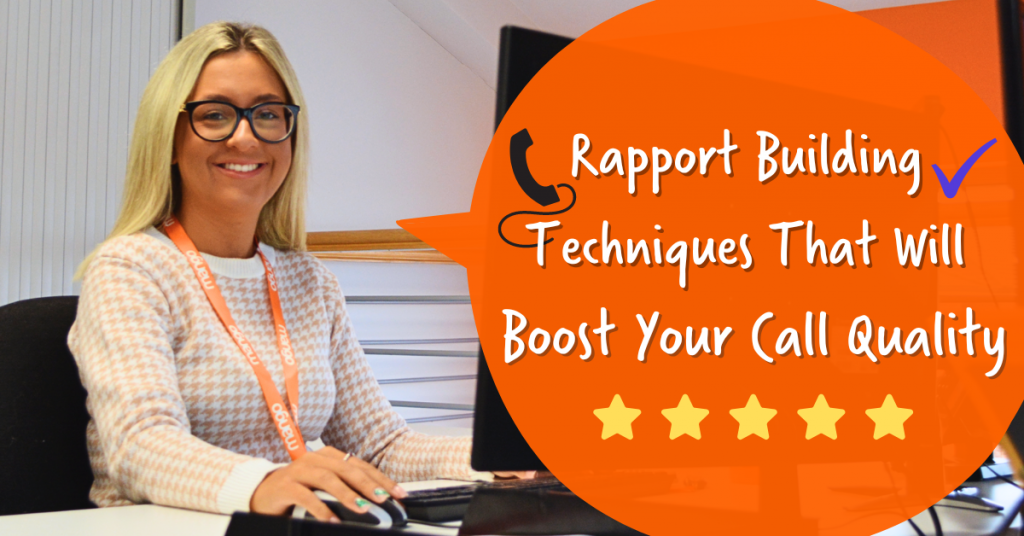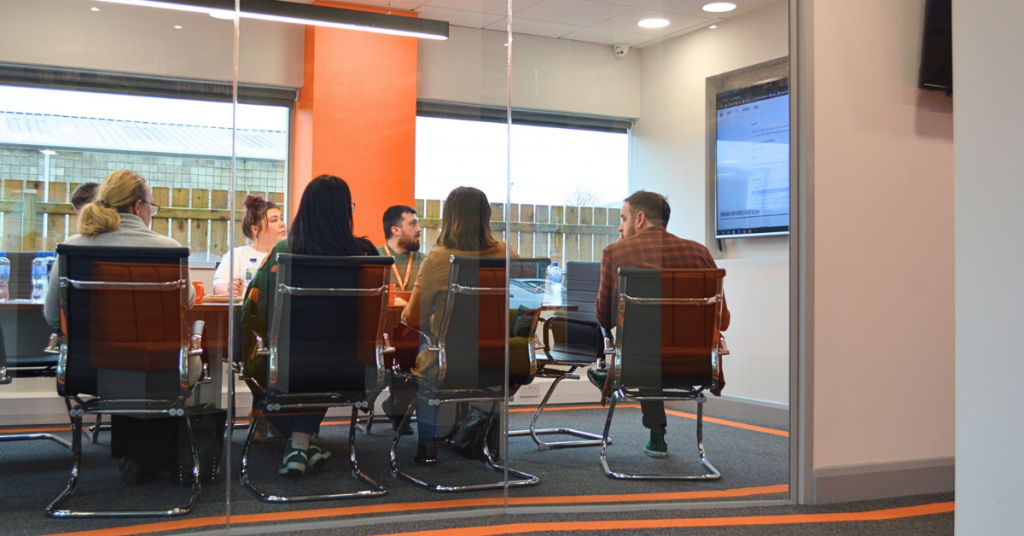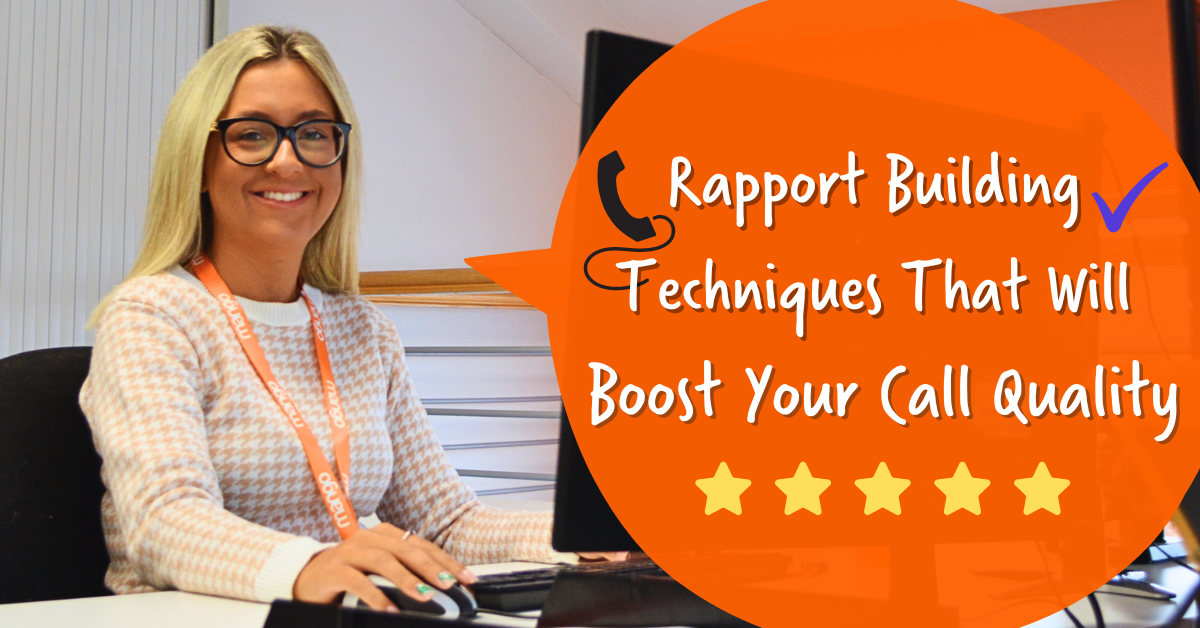Rapport Building Techniques That Will Boost Your Call Quality

At Mango, we believe in quality over quantity when it comes to call handling. While other contact centres may prefer speed over substance, we give you the chance to make real connections and conversations with people from across the globe.
How do we successfully achieve this? Our secret ingredient is rapport building.
The way we look at it: building rapport on calls is what takes an experience from ordinary to extraordinary. You just need to know the right tips and tricks to achieve it…
This week, we’ll give you full insight into our top rapport building techniques that are guaranteed to boost your call quality, create lasting impressions, and help you have fun in the process!
Why is Rapport Building Important on Calls?
Whether it be to place an order, donate to charity or make an enquiry – when someone calls a business or organisation – they will be looking to you for help. They could be feeling a range of emotions, but what will always maximise their experience is clear, empathetic, friendly communication.
Fostering good rapport with the person on your call will bring an array of benefits to everyone involved. It works almost like a knock-on effect, think about it: it helps the conversation run smoothly, which makes it more enjoyable, and generates better results!
Not only that, but adopting a positive, proactive approach to call handling can also lead to improved work wellbeing.
We LOVE this quote from Call Centre Helper:
“Good rapport isn’t about making best friends with the caller. It means creating a comfortable state where all parties converse freely and comfortably. The extra benefit is that it makes the time spent with the caller more enjoyable for the advisor.”
We could keep talking about the many benefits of rapport building – but that would probably need a blog of its own! Instead, let’s dig into how you can accomplish all the above and more with some good rapport…

Our Top Tips to Build Rapport
With some tweaks to your call structure and further training, you’ll see a world of difference in your call quality – and here they are…
Ask The Caller How They Are
In today’s digital-first world, don’t lose that all-important human connection. Spark a down-to-earth conversation by asking the caller a simple question that’s not related to their query. In our experience, you can never go wrong with “How are you today?” or “What are your plans for the rest of the day?” to instil a person-centred approach and help them feel instantly connected.
We recommend that before you start that separate conversation, wait until you determine their name and the reason for their call, so you have a clear understanding of what you need to do to help them. From here, when you can find a natural gap, ask away!
At Mango, we like to take conversations one step further. For example, after asking the caller how they are, reply to their answer with a positive response, such as: “I’m glad you’re having a good day”, as this shows that you’re engaged and personable.
Make a Point of Using Their Name
Using a person’s name in conversation creates a culture of respect, acknowledgement and consideration for the discussion. It makes the caller feel special, and establishes a positive tone for the rest of the conversation.
This all ties in with being an active listener. By being fully present and mentally engaged from the get-go, you will be providing the caller a tailored service that they won’t forget.
Our training focuses specifically on call courtesies – so if you’re new (or thinking of joining us!) – don’t worry, as we’ll cover everything you need to know to make your calls stand out.

Show You Are Listening
Listening is a BIG part of the job, but it can be easy to forget to let the caller know you’re listening. Doing this can really boost call quality and user experience, and all it takes is a little fine-tuning…
- As the caller can’t see your facial expression or body language cues, remember to use your verbal nods e.g. responding with soft sounds to express agreement or signal acknowledgment.
- Lay out clearly and concisely how you plan to help them. For example, if a caller has multiple requests, break these down and repeat them back, telling them what you will help them with first.
- Allow the speaker to finish what they are saying, avoiding interjection as best you can. No matter how many techniques you are taught to use on the phone, common courtesy will always be essential!
Top tip: at Mango, we also encourage our advisors to repeat key points back to the caller as another way to show active listening.
Think From Their Point of View
No matter the situation, it always helps to put yourself in the other person’s shoes.
If it was you calling, how would you like the call to be handled? This is a great benchmark to use when setting an authentic tone for each and every call. If you approach the call in a manner that would work for you, then you’re already winning!
Our Managers play a key part in helping advisors out with this. Whether it be through doing role playing scenarios, giving them calls to independently score, or arranging feedback sessions – we understand that everyone learns this skill in different ways.

Ask to Call Listen
It’s better to hear what makes a good call than guess what makes a good call.
Prior to your training and upskilling sessions, ask your Team Leader to find some example calls from across the contact centre. You can then score these yourself and compare to your own.
Alternatively, ask to call listen live with an experienced advisor so you can pick up new tips and ask them questions after the call.
While we believe in tailored training, we also firmly believe that call listening is one of the best ways to enhance call performance and quality. Not only does it identify new areas for improvement, but it gives you something to aim for and track as you progress in your role.
Every Interaction is Important at Mango
At Mango, we encourage our advisors to engage with callers on both an emotional and personal level, giving them space and time to listen attentively, show empathy and – most importantly – be themselves.
By implementing all the above, we promise you’ll see a huge difference in work wellbeing, caller satisfaction and call quality, to name just a few!
If you have any other techniques and tips on rapport building, please let us know in the comments below!
You can also visit our blog page for more handy hacks on other hot contact centre topics.
13.06.23
